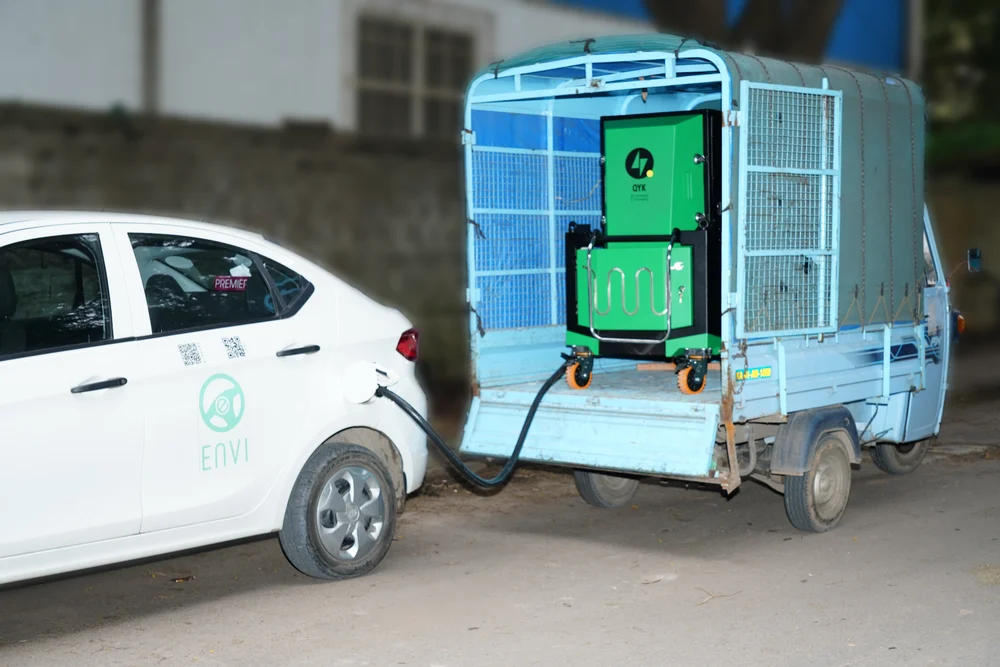Doorstep EV Charging & Maintenance
Idea Description
Oman’s electric vehicle (EV) adoption is gaining traction—tripling between 2023 and 2024—but the charging infrastructure is critically lagging. There are fewer than 100 public chargers nationwide. For electric two-wheelers, delivery fleets, and equipment like e-scooters or mobile tools, downtime due to lack of charging access is a silent killer. This creates friction in an otherwise growing green economy.
The Solution: Mobile, On-Demand Charging & Service
We deploy a fleet of IoT-enabled mobile charging trucks and vans that:
-
Charge EVs, electric bikes, and other portable electric equipment on-site
-
Provide diagnostics and basic maintenance on demand
-
Can be summoned through a user-facing app integrated with payment, location tracking, and subscription-based packages
Our model eliminates the need for fixed infrastructure and instead delivers energy-as-a-service directly to the user’s location, anywhere in Oman.
Market Opportunity
-
EV market in Oman projected to hit 22,000 vehicles by 2030 (compared to ~1,500 today)
-
Charging infrastructure gaps affect government fleets, logistics firms, residential users, and tourism
-
First-mover advantage in mobile charging regionally
Expansion into GCC markets is a natural progression, with strong early-mover leverage
Business Model
-
B2C & B2B SaaS-like subscription (monthly/annual) for individuals and corporate fleets
-
On-demand pricing for ad hoc users
-
White-label options for energy companies, malls, and government agencies
-
Carbon credits and ESG-aligned incentives potential
Tech Stack
-
Proprietary fleet and energy management system
-
Smart routing + AI for demand forecasting
-
Renewable energy integration via solar panels on vans (Phase 2)
-
Scalable to hydrogen and battery swap units
Why Now?
-
Government mandates and incentives for clean mobility
-
Rising EV imports but critical lack of charging availability
-
Youth population & logistics startups booming
-
ESG pressure on corporate fleets and real estate to go electric
Vision
Become MENA’s #1 mobile energy delivery platform, powering the region’s transition to electrified mobility and zero-emissions logistics.
Challenges The Idea is Addressing
There are fewer than 100 public chargers nationwide. For electric two-wheelers, delivery fleets, and equipment like e-scooters or mobile tools, downtime due to lack of charging access is a silent killer. This creates friction in an otherwise growing green economy.
Benefits of Idea Implementation
1.Charge EVs, electric bikes, and other portable electric equipment on-site 2.Provide diagnostics and basic maintenance on demand 3.Can be summoned through a user-facing app integrated with payment, location tracking, and subscription-based packages 4.Our model eliminates the need for fixed infrastructure and instead delivers energy-as-a-service directly to the user’s location, anywhere in Oman.
Team Members

Bio
Skills
Intrests
Similar Ideas
 14 July 2025
14 July 2025
















